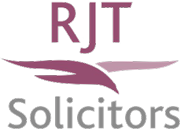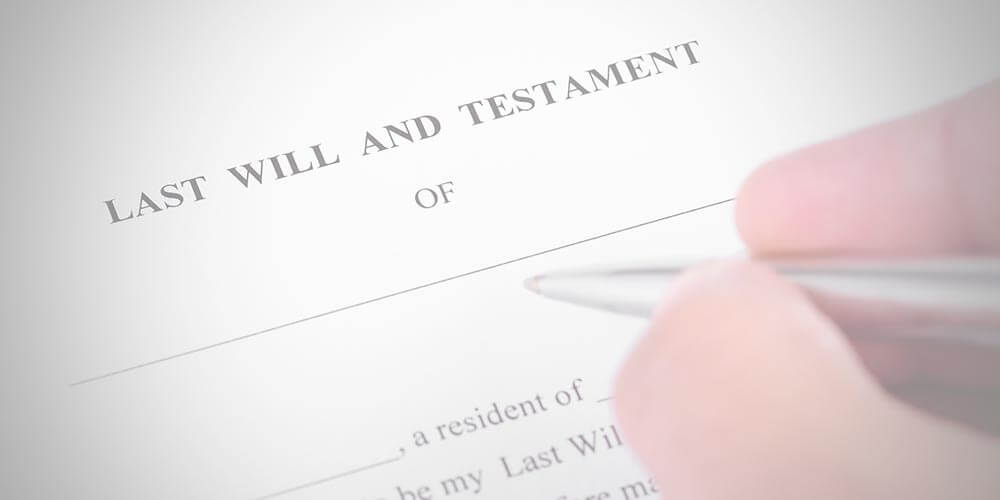Wills and Probate
Many of us put off making a will, assuming that we will have plenty of time to make a will and funeral arrangements, once we retire.
- First-time buyer
- Young professionals
- Family & friends
- Gifts & trusts
- Future planning
Having a properly executed will in place brings peace of mind that the estate will pass to those you intend to benefit, who will act as executors of your will and who will look after your children.
At RJT we make the process as simple and efficient as possible raising and answering the many questions you may not have considered. We will guide you every step of the way to ensure that all your personal affairs are fully documented and taken care of, for you and your family.
Probate
If, upon their death, the deceased owned property in their sole name or had sufficient money in any bank accounts then in order for the Executors to deal with the deceased’s affairs it may be necessary for them to apply for a Grant of Probate. This is a legal document authorising the executors to administer the deceased’s estate.
If a person dies without leaving a valid Will, the process is known as applying for Letters of Administration.
Rachel Taylor is an experienced solicitor who qualified in 1995. All such work will be undertaken by Rachel.
We adopt a caring and sensitive approach to our clients in the full knowledge that this can be a particularly distressing and emotional time for those concerned.
When someone dies we will help you through the process of sorting their estate, including:
- Collecting assets
- Sorting debts on death
- Funeral expenses
- Bank /Building Society Accounts
- Grant of Probate
- Letters of Administration
We will advise you on how to distribute the assets of the estate in accordance with the terms of the will.
RJT Solicitors will advise you as to whether a Grant of Probate is required in your particular circumstances and can apply to the Court on your behalf. Where someone dies and has not left a will, it will be necessary to apply for Letters of Administration to enable the estate to be dealt with.
Obtaining the Grant of Probate (where there is a Will ) and/or Letters of Administration (where there is no Will)
£850 plus vat of £170 = £1020 plus the application fee of £300 plus £1.50 per copy of the Grant = £1321.50 based on one copy of the Grant
- There is a valid Will or a straightforward intestacy claim where there is no Will
- There is no more than one property
- The estate is relatively simple
- There are no disputes between beneficiaries on division of assets. If disputes arise this is likely to lead to an increase in costs
- There is no inheritance tax payable and the Executors do not need to submit a full account to HMRC
- There are no claims against the estate
- Probate application fee of £300 plus £1.50 per copy of the Grant. As a guide, 1 copy per asset is usually requested
- If there is no Will or the estate consists of any share holdings (stocks and bonds) there are likely to be additional costs that could range significantly depending on the estate and how it is to be dealt with. We can give you a more accurate quote once we have more information.
- Dealing with the sale or transfer of any property is not included.
- Taking instructions
- Obtaining estate values from Executor
- Prepare statement of truth
- Attending to sign statement of truth
- Submission to Probate Registry/HMRC
- Obtaining Grant and copies and provision to executor
If obtaining the Grant of Probate only the process takes approximately 4-8 weeks.
Executors/Administrators then deal with the distribution of the estate once we have obtained the Grant for them
There is a separate charge if you wish us to administer the estate (collect in assets, discharge any liabilities, prepare Estate Accounts and distribute to beneficiaries). This is charged on a time spent basis. Our charging rates are £210 per hour plus vat (£252.00 per hour). Letters/emails out and telephone calls are charged at £21.00 each plus vat (£25.20 each.) Our approximate fee for administering an average estate valued under £325,000 with no inheritance tax payable (after the Grant of Probate has been obtained) with 1 property and up to 4 accounts is £950 plus vat (£1140).
This quote is for estates where:
- There is no more than one property
- There are no more than 4 bank or building society accounts
- There are no other intangible assets
- There are no more than 2 beneficiaries
- There are no disputes between beneficiaries on division of assets. If disputes arise this is likely to lead to an increase in costs
- There is no inheritance tax payable and the Executors do not need to submit a full account to HMRC
- There are no claims made against the estate
Potential additional costs
- £2 Bankruptcy search per beneficiary
- Between £150-£300 S27 – Advertisement in the London Gazette and a local newspaper to protect against unexpected claims
- If the estate consists of any share holdings (stocks and bonds) there are likely to be additional costs that could range significantly depending on the estate and how it is to be dealt with. We can give you a more accurate quote once we have more information.
- Dealing with the sale or transfer of any property is not included
The full administration of an estate depends very much on the size and complexity of the estate. On average, for a straightforward case, it takes approximately 6-9 months to administer the estate once the grant has been obtained.
- Provide Grant of Probate to financial institutions
- Collect in all assets
- Discharge all liabilities of the estate
- Prepare Estate Accounts
- Obtaining executor approval and distribution of the estate
Rachel Taylor and Donna Gamble are experienced solicitors who will deal with your case as efficiently and sensitively as possible.
Lasting Powers of Attorney
A Lasting Power of Attorney (LPA) is a legal document that enables an individual to make decisions on their behalf.
There are 2 forms of LPA:
- One to deal with property and financial affairs
- One to deal with health and welfare issues
We at RJT Solicitors will advise you fully on both types of LPAs and prepare the required document, arrange for it to be properly executed and then register the power for you with the Office of the Public Guardian.
RJT Solicitors, your friendly and approachable family solicitor








